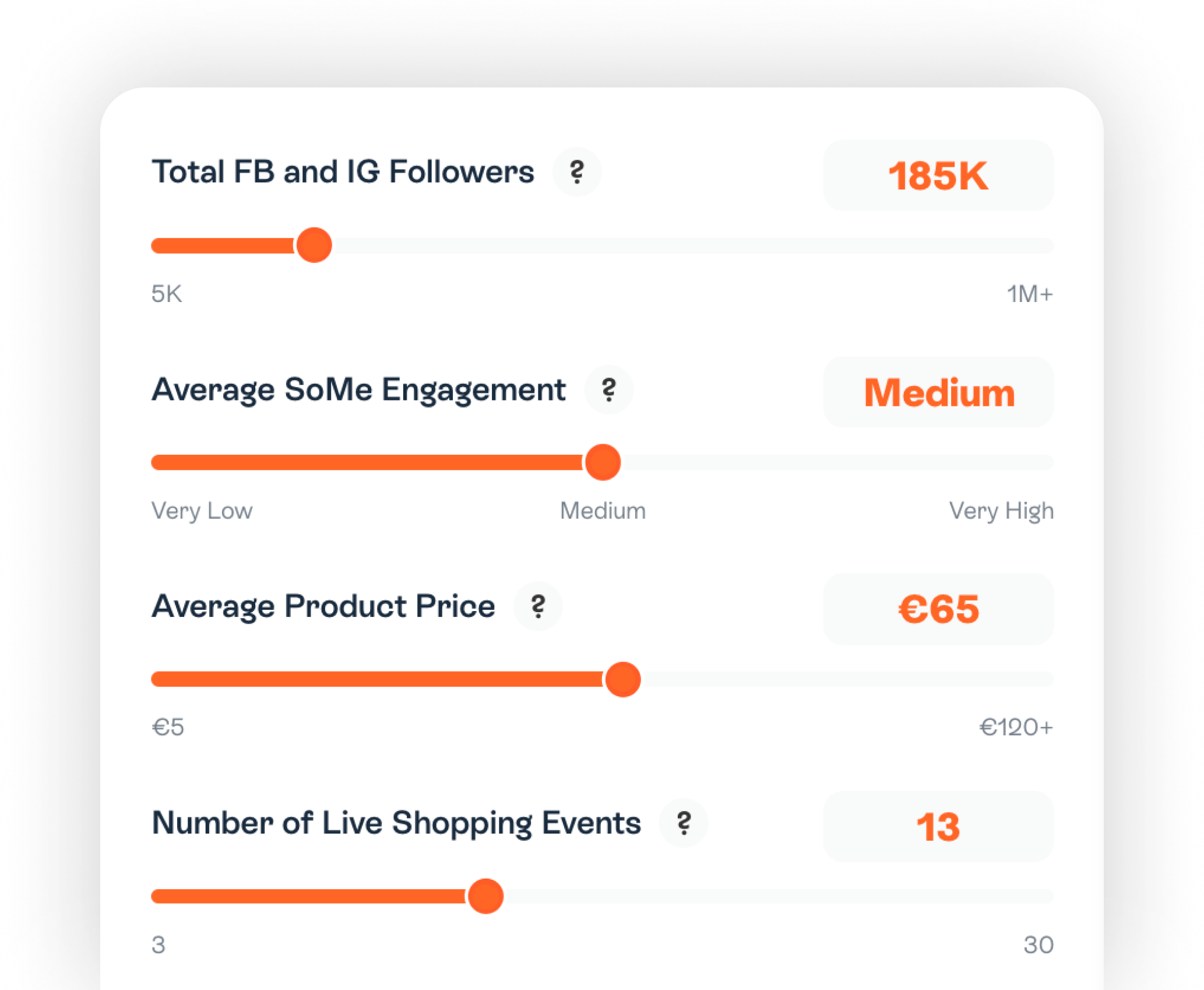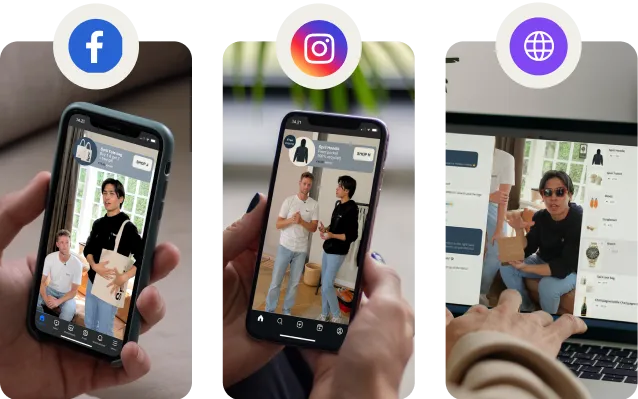How Retail Leaders Embrace Change to Unlock Growth – featuring Oliver Bank
Adopting new technology is as much about mindset as it is about tools. In this case, retail expert Oliver Banks shares how leading retailers overcome resistance, embrace innovation, and use Live Shopping as a practical way to drive change, agility, and measurable growth.

.png)
Quick Summary
Adopting new technology is hard - here's how to start
Adopting new technology isn’t just about the tools — it’s about shifting mindsets, aligning teams, and moving fast enough to stay competitive. In this article, retail transformation specialist Oliver Banks shares practical insights on how leading retailers overcome internal resistance and embrace innovations like Live Shopping to drive measurable growth.
From tackling fear of change to building agile cultures and scaling new ideas across teams, this conversation reveals what it really takes to make transformation stick in modern retail.
Start with why: Diagnose reality before prescribing technology
Banks’s core advice: resist the urge to lead with a solution. Instead, interrogate the problem and the opportunity.
That begins with two moves:
1. Take an honest look in the mirror: How are customers actually experiencing your brand? Where is the friction for colleagues? What are the real performance signals - beyond assumptions and institutional knowledge?
2. Read the signals: Gather both qualitative and quantitative inputs - customer insight, performance data, and market trends. Let these inform whether technology is the right lever now, and which technology aligns with your context.
The goal: connect initiatives to clear business outcomes (e.g., conversion, new customer acquisition, inventory turns, margin mix) before you debate platforms.
See the full talk with Oliver Banks here:
Name and find the blockers:
Change creates cognitive and organizational stress. Banks highlights two universal blockers:
Fear of the unknown — uncertainty about how the change will play out.
Fear of failure — concern about job risk, reputation, and fragile margins
Acknowledge both at the organizational and individual levels. Build plans that reduce ambiguity (small pilots, clear decision gates) and decouple intelligent failures from personal blame. Leaders should ask: What would make this feel safer to try? Then implement exactly that.
Action and agility: The practical engines of transformation
Banks sees two traits in teams that break inertia:
- Bias to action. Replace busy work with measurable next steps. Define progress weekly: what customer behavior, funnel metric, or KPI will move if this works?
- Agility in practice. Treat initiatives as test‑and‑learn portfolios, not binary bets. Run time‑boxed experiments, set success criteria in advance, and normalize the ability to revert if needed. Agility isn’t a capital‑A framework; it’s a habit: try, learn, adjust.
This matters even (and especially) during adverse performance. If the last two years lacked experimentation, today’s softness might be an indicator of yesterday’s caution.
Culture and appetite: Will you actually follow the evidence?
Technology succeeds where culture (how things truly work) and appetite (leadership’s willingness to pursue a new path) align. Locate your agents of change—they might be top‑down sponsors, mid‑level integrators, or bottom‑up creators.
Make the path explicit: who owns the pilot, who removes blockers, and who will green‑light scale if the metrics hit?
Where AI and modern retail tech deliver value
AI isn’t one thing; it’s a toolkit already embedded in retail. Banks cites practical, proven domains:
- Forecasting & replenishment: better demand signals → better stock flow.
- Pricing: dynamic inputs (inventory, competitor signals, customer preferences, weather, promotions) → smarter price decisions.
- Content operations: scalable product copy, multilingual assets, and increasingly, video workflows.
Takeaway: evaluate AI by use case and outcome, not trendiness. Anchor every investment in a specific customer or profit and loss lever.
Live Shopping why it’s the perfect place to start
For organizations curious about Live Shopping, Banks recommend moving from abstract debate to concrete, low‑risk pilots.
Why Live Shopping fits a test‑and‑learn motion:
Agile by design: No store fit‑outs, minimal supply chain dependency, lightweight creative.
Fast feedback loops: Real‑time engagement, direct conversion data, and shoppable replays for extended ROI.
The Triple C effect: Content + Community + Commerce in one experience—spotlighting customer passions while driving sales.
Where to start:
- Define a sharp use case. e.g., new‑season launch, limited‑time bundles, category education, VIP early access.
- Choose a simple success metric. Conversion rate, revenue per viewer, email opt‑ins or repeat‑visit rate from replays.
- Pilot with one squad. Assign clear owners across e‑commerce, merchandising, creative, and customer service.
- Multistream and measure. Meet audiences where they are (social + site) and compare engagement patterns. Keep what works; drop what doesn’t.
- Create a learning cadence. Document insights after every event - offer design, show format, host style, Q&A dynamics - and fold them into the next run.
How to rally the organization
To move colleagues from interest to commitment:
- Tell the story in outcomes: tie Live Shopping to growth levers your leadership already tracks.
- De‑risk the first steps: small budget, clear timeline, reversible decisions.
- Show progress visually: share quick dashboards after each pilot (engagement → add‑to‑cart → checkout → replay views).
- Codify the playbook: when you find a winning format, document it so others can replicate.

Final word
Retail’s constant is change but change can be learned. Start with truth‑telling about your current state, set up a runway for safe experiments, and pursue the next best action with discipline. Whether you’re tuning AI use cases or trialing Live Shopping, the teams that win aren’t the loudest about innovation; they’re the most consistent about learning.
If you’re exploring Live Shopping and want to see what’s possible, browse our resources and shoppable demos—or speak with a Sprii specialist to map a pilot that fits your goals.
Learn more
Want to turn your returns into a loyalty engine? Visit reurbo.io to explore Returbo
Want to reduce returns before they happen? Learn how Sprii’s Live Shopping solution can help
Want more content like this? - Follow Sprii on LinkedIn or watch the full Expert Talk
Related articles
Discover how live shopping can 20X your conversions









.png)
.png)


%201.webp)
.webp)
.webp)






%201.png)
%201.png)





